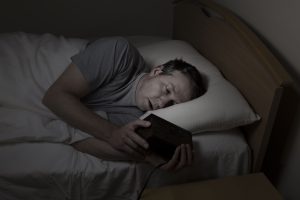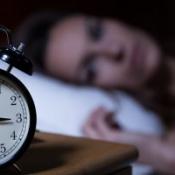 Cognitive behavioral therapy (CBT) may effectively treat insomnia in older adults, according to a study published in the Journal of the American Geriatrics Society. Insomnia is common among older adults, whose health, lifestyle, and medications can make sleep more difficult. Statistics from the National Institutes of Health show almost half of adults older than 60 experience insomnia.
Cognitive behavioral therapy (CBT) may effectively treat insomnia in older adults, according to a study published in the Journal of the American Geriatrics Society. Insomnia is common among older adults, whose health, lifestyle, and medications can make sleep more difficult. Statistics from the National Institutes of Health show almost half of adults older than 60 experience insomnia.
Despite stereotypes that suggest older adults need little sleep, the National Sleep Foundation recommends 7-8 hours of sleep for adults 65 and older. Younger adults need only slightly more sleep, at 7-9 hours of sleep per night.
Cognitive Behavioral Therapy to Treat Insomnia
Cognitive behavioral therapy aims to alter people’s thoughts with the goal of changing their behavior. A person engaged in CBT can learn to detect automatic thoughts, question those thoughts, replace them with healthier and more realistic thoughts, and then use the changed thought patterns to change their behavior. CBT for insomnia trains participants in healthy sleep habits, helping them to identify and address problematic sleep patterns.
To test the effectiveness of CBT for insomnia, researchers divided 159 seniors into three groups. Participants ranged in age from 60 to 90. Most of the participants were male veterans.
Two groups received CBT from sleep coaches with a master’s degree in public health, social work, or communications. In one group, CBT training was in a group setting. The second group received one-on-one CBT coaching. A third group participated in general sleep education. Each training program was the same duration, consisting of five sessions over six weeks.At the end of the six-week period, participants who underwent CBT training in both group and individual settings saw significant improvements in sleep. On average, CBT participants fell asleep 23 minutes earlier, and their total wake time during the night decreased by 68 minutes. They also reported greater sleep quality.
Insomnia Treatment Recommendations
Sleeping medications can be addictive, and seniors who take other medications may not be able to safely take sleep drugs. CBT offers a viable alternative. Sleep experts have long advocated for non-medication approaches to insomnia. In May 2016, the American College of Physicians recommended CBT before pursuing medication for people with chronic insomnia.
Because this study included male veterans, the authors say the results can’t yet be applied to females or non-veterans with sleep issues. Further research is necessary to determine if CBT for insomnia will be effective for other groups.
References:
- ACP recommends cognitive behavioral therapy as initial treatment for chronic insomnia. (2016, May 3). Retrieved from https://www.acponline.org/acp-newsroom/acp-recommends-cognitive-behavioral-therapy-as-initial-treatment-for-chronic-insomnia
- Cognitive behavioral therapy for insomnia provided by sleep coaches. (2016, October 28). Retrieved from http://www.healthinaging.org/news/research-summaries/article:10-28-2016-12-00am-cognitive-behavioral-therapy-for-insomnia-provided-by-sleep-coaches-is-effective-for-older-people-with-insomnia/
- Insomnia. (n.d.). National Institutes of Health. Retrieved from https://nihseniorhealth.gov/sleepandaging/insomnia/01.html
- National Sleep Foundation recommends new sleep times. (2015, February 2). Retrieved from https://sleepfoundation.org/media-center/press-release/national-sleep-foundation-recommends-new-sleep-times
© Copyright 2016 GoodTherapy.org. All rights reserved.
The preceding article was solely written by the author named above. Any views and opinions expressed are not necessarily shared by GoodTherapy.org. Questions or concerns about the preceding article can be directed to the author or posted as a comment below.

 Can’t Sleep? How to Put Insomnia to Bed
Can’t Sleep? How to Put Insomnia to Bed The Question Keeping You Up at Night: Can Insomnia Kill You?
The Question Keeping You Up at Night: Can Insomnia Kill You? From the Sleep Queen: Simple Tips and Yoga to Help You Sleep
From the Sleep Queen: Simple Tips and Yoga to Help You Sleep